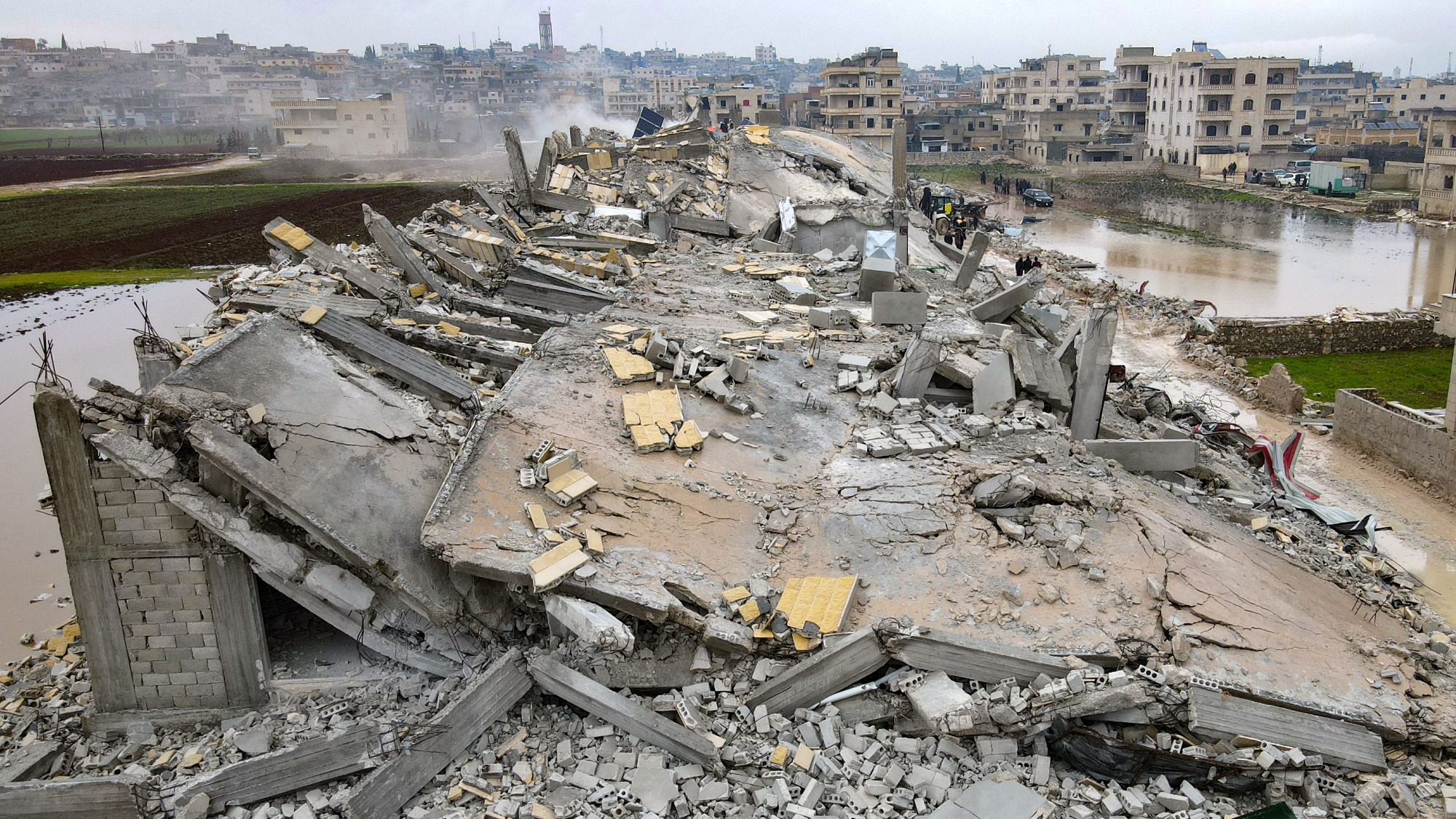

Before dawn on Monday, a 7.8 magnitude earthquake struck parts of Turkey and Syria. Hundreds of buildings were toppled and at least 35,000 people were killed. The death toll is expected to rise as rescuers search for the hundreds believed to be trapped under the rubble.
“Because the debris removal efforts are continuing in many buildings in the earthquake zone, we do not know how high the number of dead and injured will rise,” said Turkish President Recep Tayyip Erdogan, according to the Associated Press. “Hopefully, we will leave these disastrous days behind us in unity and solidarity as a country and a nation.”
[Related: Millions of Android phones could soon start detecting earthquakes.]
The earthquake hit about 4:17 AM local time and was centered about 20 miles from the southeastern city of Gaziantep. The city with a population of over 2 million is the capital of the Gaziantep Province.
According to the United States Geological Survey (USGS), the quake was 11 miles deep and a strong 6.7 magnitude aftershock hit about 10 minutes after the initial quake. More than 30 other aftershocks hit after the initial earthquake, and were felt in Greece, Israel, Cyprus, Lebanon, and neighboring Syria.
Syria has already suffered through over 11 years of civil war, with millions of displaced refugees living in the region. Many of the buildings housing refugees are already damaged from bombing. The Syrian health ministry reported over 326 fatalities and 1,042 injuries as of Monday morning. Rescuers said 221 people had died in the Syrian rebel-held northwest.
The White Helmets, a volunteer relief organization also called the Syria Civil Defense, declared northwestern Syria a disaster zone and called on, “local authorities and civil forces to mobilize their cadres.” They continued in a tweet, saying “we recommend all humanitarian, health and relief organizations operating in Syria to share work according to the system of parity and their geographical distribution in order to ensure that the necessary needs are covered as much as possible.”
Additionally, the earthquake has coincided with a winter storm that has complicated relief efforts, as displaced residents are facing near-freezing temperatures. “Hundreds of thousands of people are impacted by this,” meteorologist Karen Maginnis told CNN. “It is cold. It is rainy. Roads could be impacted, that means your food, your livelihood, the care for your children, the care for your family.”
The European Union has mobilized more than 10 search and rescue teams. The US, United Kingdom, Israel, China, and Russia are among the multiple other countries who have offered assistance.
Turkey sits atop the Anatolian Plate, a block of the Earth’s crust that is slowly rotating counterclockwise, shifting west with time. It is moving roughly an inch per year and collisions with the Eurasian and African plates can cause frequent earthquakes.
[Related: The shakiest earthquake myths debunked.]
“The combination of large magnitude and shallow depth made this earthquake extremely destructive,” Mohammad Kashani, Associate Professor of Structural and Earthquake Engineering at the University of Southampton, told Reuters.
In 1999, a 7.4 magnitude earthquake hit the city of Düzce, killing more than 17,000 people, including around 1,000 in Istanbul.
Widespread building and safety precautions have been implemented in Istanbul since then, as experts have warned that a large quake could devastate the city of over 15 million.
In January 2020, a 6.8 magnitude earthquake hit Elazığ, killing more than 40 people. In October of that year, a 7.0 quake centered in the Aegean Sea, killed 114 people and wounded over 1,000.
According to the American Red Cross, some ways to stay safe during an earthquake include getting low to the ground while protecting your head and torso (drop, cover, and hold on), sheltering under a sturdy piece of furniture, waiting until the shaking stops to go outside, and having an earthquake plan and supply kit ready.
